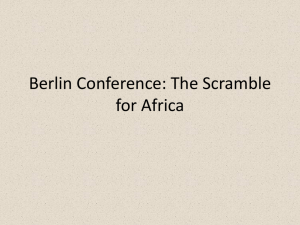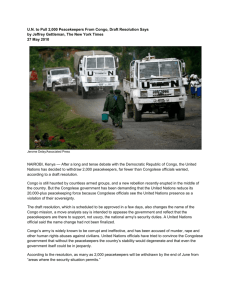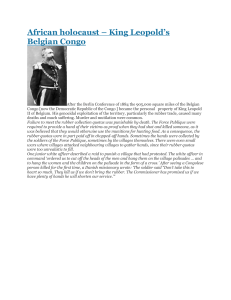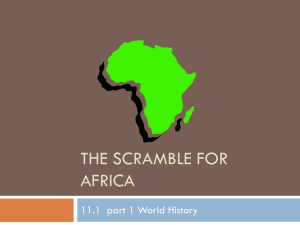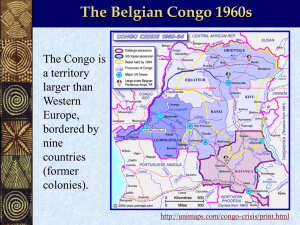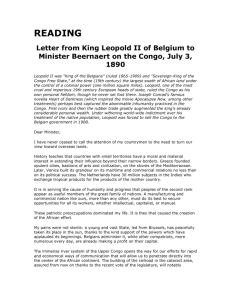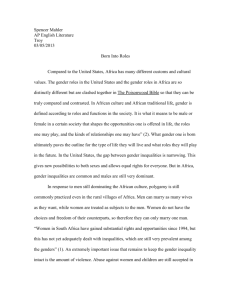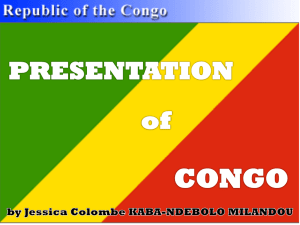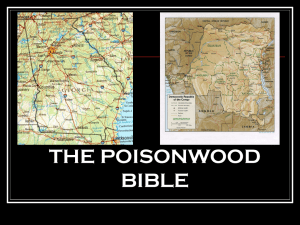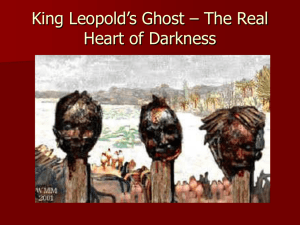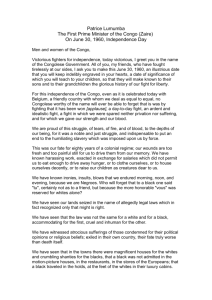Belgian influence in the Congo
advertisement
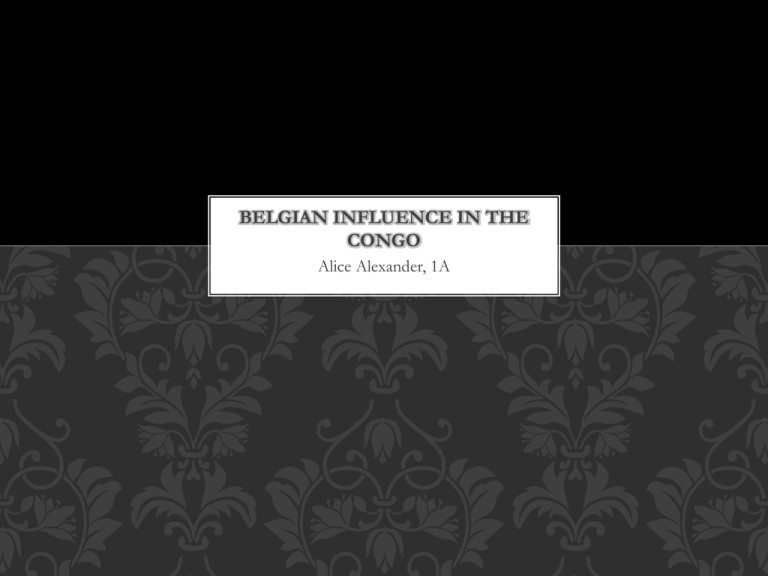
BELGIAN INFLUENCE IN THE CONGO Alice Alexander, 1A THE CONGO CRISIS •The Congo was uninhabited until the late 19 th Century •Congo River Basin largely unclaimed •Dispute over territory declared the Congo Crisis •Berlin Conference occurred in 1884 •Convened by Otto von Bismarck to solve the Congo Crisis peacefully KING LEOPOLD II •King of the Belgians, he thought that the land might provide his kingdom with steady income •He ruled over Belgian Congo from 1885 to 1908 •His dream was to obtain and colonize territory, even before he was king •Emerging victorious from the conference, he received over 2,000,000 km2 of land •This was deemed the Congo Free State ECONOMIC OPPORTUNITIES •Twice, Leopold II requested loans so that his state wouldn’t go bankrupt •Actions such as the exploration and settlement of the territory became financially straining for the king •However, he stumbled upon multiple sources of rubber and copper, among other minerals •These resources were exploited and sold •This saved both the territory and his seat of power TROUBLES IN THE RUBBER TRADE •King Leopold II found that the resources he’d discovered had brought great wealth •He spent his money unwisely •He used it to embellish his home country of Belgium, building galleries and palaces •The product was harvested through the mistreatment of locals and the unauthorized plunder of natural resources •One of the worst man-made disasters of the turn of the century COLONY IN BELGIAN CONGO •Established by Belgian Parliament in 1908 •Divided into districts and territories •Many aspects of the colony were improved after the colonial state took over from Leopold II •Belgian leaders called “Bula matari”, which means “to break rocks” •The office governor general remained present through the free state and the colony CONGOLESE RESISTANCE • • • • • Many Congolese showed dissent to colonies Armed resistance was common and widespread This went on until after World War II In the late 1950’s “pax belgica” was enacted Most missionaries sympathized with Congolese discontent CONCERNS IN THE COLONIES • Fight against sleeping sickness was in the peoples’ favour • Even so, the population remained stagnant • Congolese forced into labour and mandatory cultivation INTEREST IN CONGOLESE CULTURE • • • • Congolese culture was disappearing Missions wanted to preserve native culture Father Gustaaf Hulstaert created the Aequatoria in 1937 The Aequatoria was devoted to the linguistic, ethnographic and historical study of Congolese people • Greater interest in culture took place after WWII
